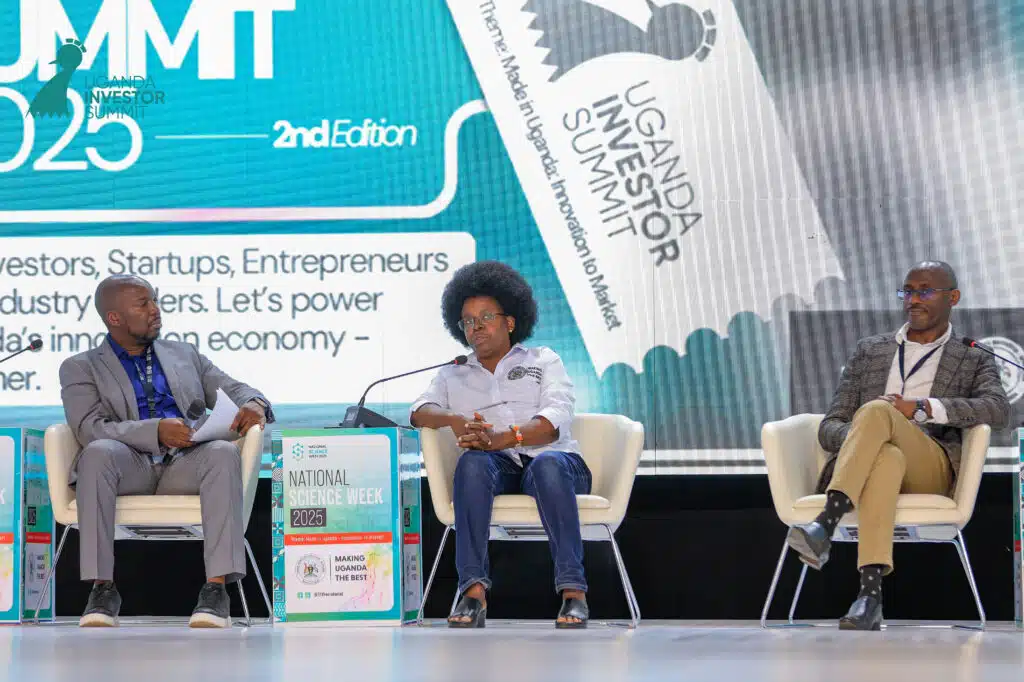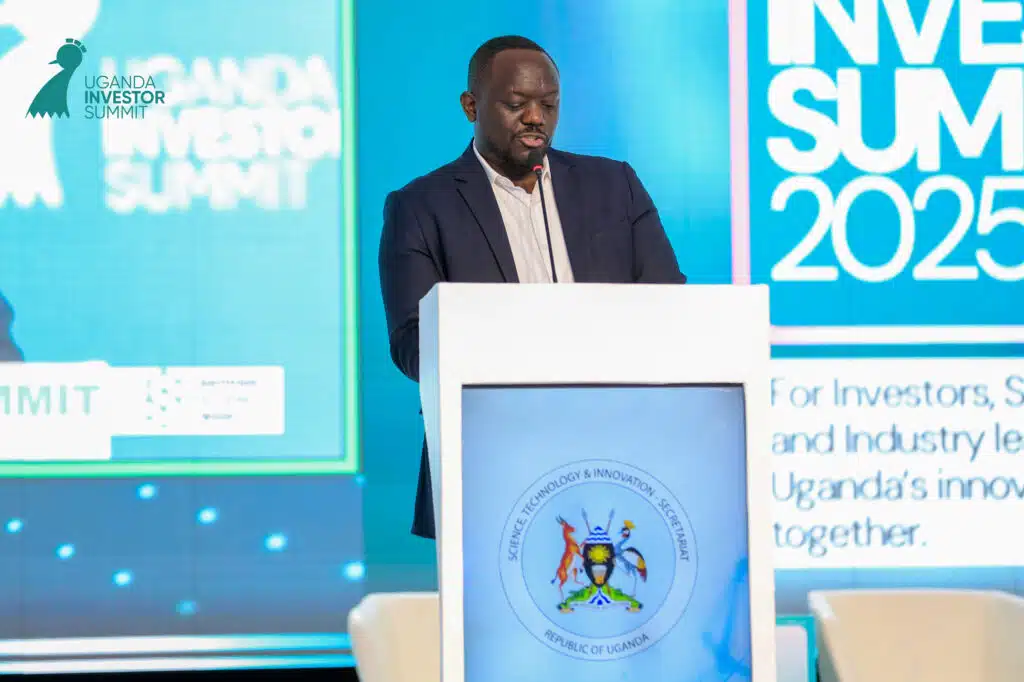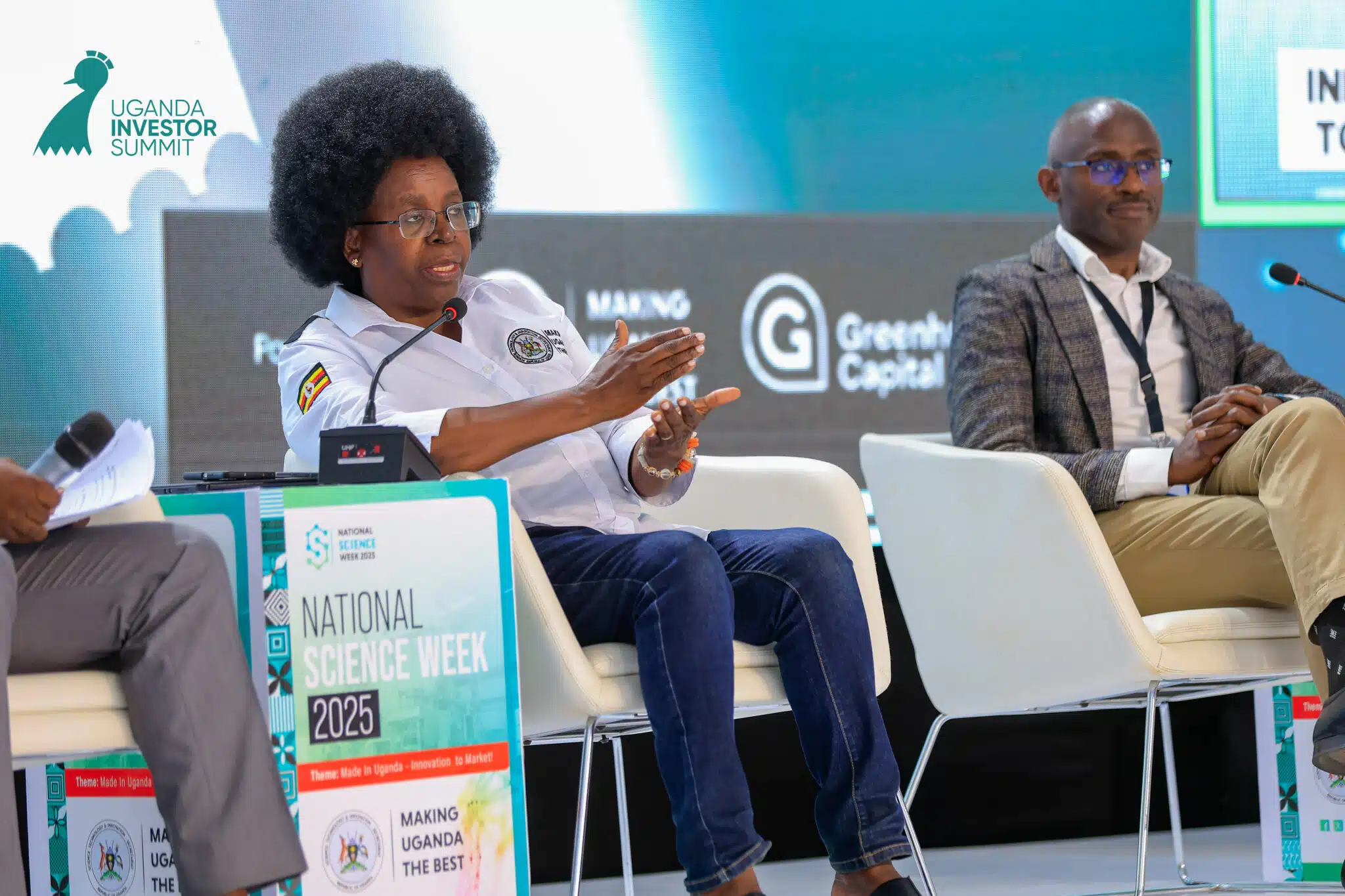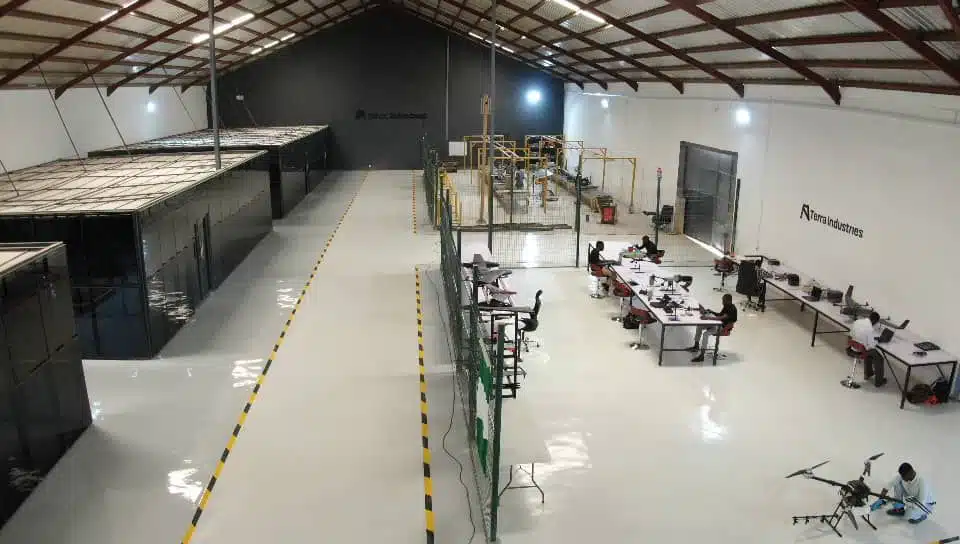“We are open for business.” This is what Dr Monica Musenero, Uganda’s Minister for Science, Technology, and Innovation, said to investors at the second edition of the Uganda Investor Summit in Kampala on Thursday, June 19, 2025. This was the minister’s rallying call at her address to investors from about 20 countries.
The electric bus that ferried investors around Kampala for the two-day Summit wasn’t just transport but a statement. Built by Uganda’s state-backed Kiira Motors, the vehicle embodied everything that makes the country’s tech ambitions different from the rest of Africa’s startup scene.
There are no flashy app demos, no fever-pitch funding rounds, just the sonorous hum of a locally manufactured electric motor, carrying an audacious and practical message: while other African countries chase quick exits and viral growth, Uganda is building the hard stuff.
“Our entrepreneurs do not have the luxury of easy money,” declared David Gonahasa, Managing Director at payments startup Tripesa, addressing investors at the Summit. “We have had to hustle, and hustle we will.”
His words captured something profound about Uganda’s approach to technology—a deliberate rejection of the “move fast and break things” mentality that has dominated African tech discourse for the past decade.
Meet the Bride

In a continent where 67% of venture capital flows to just four countries—Nigeria, Kenya, South Africa, and Egypt—Uganda’s sub-$10 million annual VC intake might seem like a disadvantage. But for Dr Musenero, it’s precisely the opportunity she’s been waiting for.
“Many people have asked why we weren’t telling them what we were doing,” she told the assembled investors, many of whom had travelled from across five continents. “And I’ve said—we were preparing the bride. And now it’s time to meet her.”
The bride metaphor isn’t just ministerial poetry. It reflects four years of systematic preparation that has seen Uganda build what might be Africa’s most deliberately constructed tech ecosystem. Whilst other markets scaled quickly on the back of mobile money and e-commerce, Uganda has been quietly investing in manufacturing facilities, research institutes, and deep-tech infrastructure.
The results are beginning to show. Kiira Motors, born from a Makerere University project, now operates from a new assembly plant in Jinja and plans to produce 5,000 electric buses annually by 2026. Dei Biopharma manufactures over 3,000 pharmaceutical products from its high-capacity plant about 27km outside Kampala. A local company is exporting proprietary IoT sensors to clients in Switzerland, Kenya, and Nigeria.

Victoria Fakiya – Senior Writer
Techpoint Digest
Stop struggling to find your tech career path
Discover in-demand tech skills and build a standout portfolio in this FREE 5-day email course
“We have matured our innovation ecosystem,” Musenero explained. “We have custom-designed it to be suitable for the purpose.”
The infrastructure advantage
Uganda’s bet on hardware over software rests on structural advantages that many African countries lack. With 75% of its 48 million people under 35, Uganda boasts one of the continent’s youngest populations. More crucially, it’s also one of the most densely populated, making it an ideal testing ground for new technologies.
Then there’s the power situation. Whilst much of sub-Saharan Africa struggles with blackouts, Uganda generates more electricity than it can consume, thanks to years of hydroelectric investment.
“We cannot consume all the power we generate,” Musenero told investors. “Your factories, your servers, your batteries—they will not go dark here.”
Beyond keeping the lights on, it’s about creating the conditions for manufacturing at scale, which has proved elusive for many African tech companies that have struggled to move beyond software solutions.
Beyond the Big Four
The numbers tell a story of intentional divergence. Uganda’s startup scene received less than 1% of Africa’s total VC funding in 2024, a figure that would typically signal market failure. But Uganda’s leaders see it differently.
“Uganda may be different. We have been designed to be unique,” Musenero noted, “and interacting with us, you’ll find it very, very gratifying.”

The uniqueness lies in the approach. Government-backed engineers are building and testing hardware prototypes ranging from smart metres to diagnostic devices. The Uganda Industrial Research Institute helps local engineers prototype equipment that was previously imported. A locally built AI studio, called CraneAI, has created offline language models tailored for Ugandan dialects.
It’s a pipeline approach that prioritises substance over spectacle, building from the ground up rather than scaling from the top down.
The validation market
For Bunmi Akinyemiju, Founder and Managing Partner of Greenhouse Capital, a venture capital firm focused on investing in innovative technology companies in Africa, Uganda represents something rare in African tech: authentic political will.
“We all know that in Africa, the potential is there. We talk about that all the time,” he told the audience at the Summit. “But the piece that’s usually always missing is what? Political will. That political will is right here, and that’s all I needed for us to really believe in the Uganda mission.”
That political will has translated into concrete policy changes. Responding to investor feedback from the inaugural 2023 summit, Uganda introduced three-year tax breaks for early-stage companies, committed local capital to co-fund startups, and invested in infrastructure to support deep-tech development.
The government has also approved the construction of a one-square-mile tech city in a prime location, with funding already secured. It’s the kind of long-term infrastructure investment that many African governments promise but few deliver.
The 22nd-smallest gamble
Uganda’s demographic density creates unique opportunities. As one speaker noted, “Uganda is the 22nd smallest country in Africa with the ninth largest population. That’s 48 million people living in a country smaller and with more people than Algeria, Morocco, Ghana, Ivory Coast, Mozambique, Zambia, Botswana, and Namibia.”
This concentration makes Uganda what entrepreneurs are calling “the best validation market in Africa”—a place where products can be tested, refined, and scaled without the geographic challenges that plague larger African markets.
The government’s ambitious GDP target—growing from $50 billion to $500 billion—might sound unrealistic, but the infrastructure investments suggest serious intent. The bet is that by building the hard stuff first, Uganda can create sustainable competitive advantages that outlast the hype cycles that have defined much of African tech.
The long game pays off
Early signs suggest the strategy is working. Several investors at the summit pointed to a maturing generation of Ugandan founders building for complexity rather than virality. Companies like FutureLink, eMyShopp, Flow, and Tripesa have already attracted investment from funds that initially overlooked the Ugandan market.
“For those who got in early, we’re confident you made the right decision,” Gonahasa told the audience, highlighting the vindication felt by early believers in Uganda’s approach.

The challenge now is scaling this model whilst maintaining its distinctive character. Policy execution remains uneven, regulatory delays frustrate foreign partners, and despite government efforts, the private capital pool remains shallow compared to regional peers.
But for a country that has deliberately chosen the harder path, these challenges may be exactly what creates the competitive moat that has eluded so many African tech ecosystems.
The Bride is ready
As the summit concluded, Musenero’s message was clear: the preparation phase is over.
“Your money will be invested in what could easily be the best validation market in Africa,” she assured investors. “And yes, now we need the money. So take this journey with us.”
Whether Uganda’s unconventional approach will prove prescient or merely different remains to be seen. But in a continent where tech success has often been measured by funding rounds rather than real-world impact, Uganda’s focus on manufacturing, infrastructure, and deep-tech solutions offers a compelling alternative narrative.
The Bride is ready. The question is whether investors are prepared for a relationship that prioritises substance over spectacle, and long-term value creation over quick returns.
In an African tech ecosystem increasingly dominated by familiar patterns, Uganda’s bet on being different might just be the disruption the continent needs.









